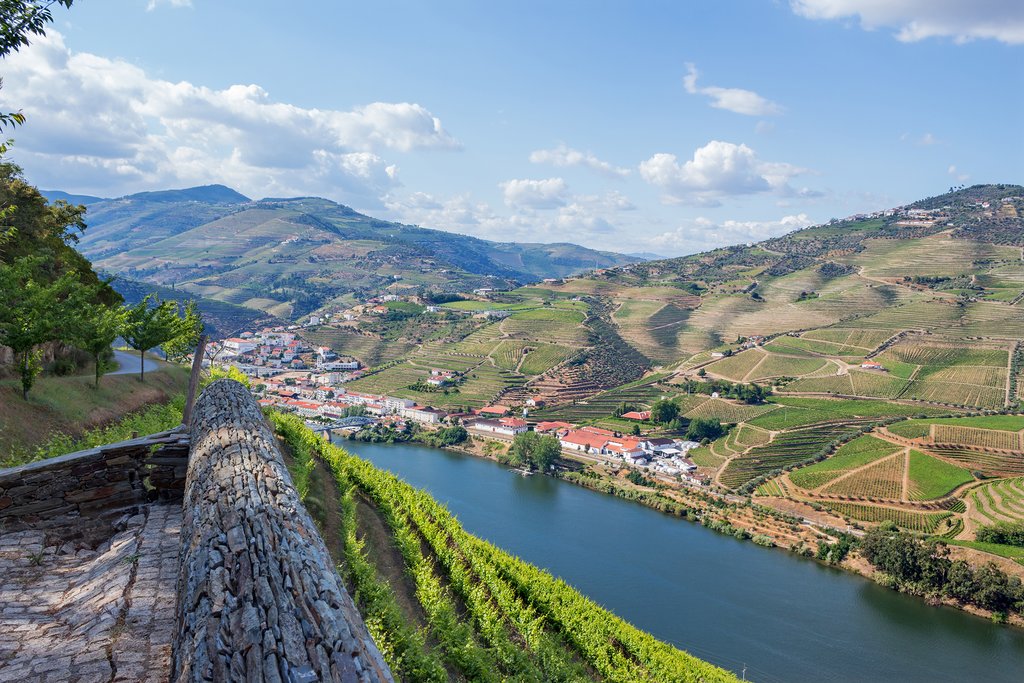The Douro Valley was named a UNESCO World Heritage Site for good reason: grapevines growing on the region's idyllic hillsides produce famed table wine and port—a scene made even more beautiful by the Douro River that flows along the valley floor. Porto is the closest major hub, an hour away by car (two hours by train or bus). Expect a 3.5-hour drive from Lisbon and around five hours by bus or train.
If you want to explore more of Portugal after your time in the Douro Valley, you may want to consider this seven-day tour in the Algarve, where you'll have an opportunity to go horseback riding, rock climbing, and go on a wildlife walk.
From Porto
Duration: 1 hour and 15 minutes by car, 2 hours by train or bus
The fastest and most convenient way to reach the Douro Valley from Porto is to drive or go by private transfer. The drive is straightforward, taking the A4 highway for 70 miles (110 km) in the direction of the town of Peso da Régua. Driving along the Douro River is impressive, with views of well-tended vineyards on steep hills.
Taking public transport is also an option. Trains depart from the Porto Campanha Station with stops in Peso da Régua and Pocinho—the end of the train line. Travel time is an hour and forty-five minutes, offering splendid views of the Douro Valley and River from your train carriage that you won't see by car or bus.
Traveling by bus is possible with the bus company, Rede Expressos, offering departures to the Douro Valley town of Peso da Régua several times a day. The journey starts at Campo 24 de Agosto Station and takes two hours.
From Lisbon
Duration: 3.5 hours by car, 5 hours by bus, 5.5 hours by train
Driving from Lisbon to the Douro Valley is an easy and direct trip covering a distance of 125 miles (200 km) on the A1/E1 Highway. You'll pass by the beautiful Parque Natural das Serras de Aire e Candeeiros, where you can take a stroll through the forest or stop for photos if you have time. You'll continue on until you near the city of Coimbra, where you'll change highways for the last leg of the trip. Travel time is three hours and a half.
Taking the train from Lisbon is an option, though there aren't any direct trains. The best option is to board a train from the Santa Apolónia Station in Lisbon to Porto, which takes a little under three hours. Once in Porto, you'll need to take an urban train to the town of Peso da Régua, which takes a little over two hours. Total travel time is around five hours and fifteen minutes. Note some of the urban trains go direct, and some require changing trains, so do check the schedule closely when buying your ticket.
Riding the bus is another option and takes around the same time as the train. Buses are operated by Redes Expressos with departures from the Lisbon Sete Rios Station and Lisbon Oriente Station. The journey takes between four hours and 45 minutes to five hours and a half, depending on the type of train you book.
